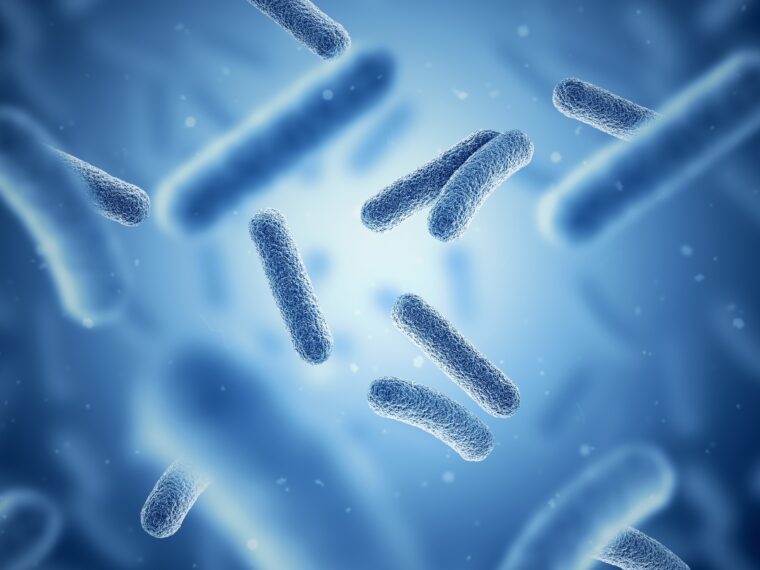It’s been called our second brain and even thought to be linked to sleep quality but there’s still so much we don’t know about the gut. If you’ve heard terms like ‘gut microbiome’ thrown around and you’re not sure what it means, then read on to unlock tips to better digestion, immunity and overall health.

What Is Your Gut Microbiome & How To Improve Gut Health
What is the gut microbiome?
Did you know you have a bustling community of tiny creatures living inside your gut? Our bodies have trillions of microorganisms (also known as microbes) living all over our bodies, but the majority of them are in the gastrointestinal tract, which starts at the mouth and ends in the anus. These microbes can live in the oesophagus, stomach, small intestine, large intestine, colon or rectum.
The collective term used for the microorganisms living in the gut is the gut microbiome. Bacteria, fungi, parasites and viruses are all part of this microbial world, and in a healthy body they mostly live in harmony with us and each other.
There are many different microbes living inside us, and they don’t all come in peace. ‘Good’ microbes have co-evolved with us to have a symbiotic relationship over millions of years, meaning we give them shelter and food and they perform important tasks for our bodies, such as digestion.3 Neutral microbes just do their own thing, not harming or helping. There are also ‘bad’ bacteria which can make you ill such as E. coli and Salmonella.
Everyone’s gut microbiome is unique to them – even identical twins have very different civilisations living in their gut. The gut microbiome starts developing when a baby is first born. We used to believe that babies were born completely sterile before receiving breastmilk, but new evidence suggests that the amniotic fluid (a slightly yellowish liquid which surrounds and protects the baby when they are in the womb) contains microbes which can start transferring to the baby before they are born.
When a baby is born vaginally, they are covered in microorganisms as they pass through the birth canal, and their mother then passes microbiomes to their child through breast milk. Your environment, any medication you take and, crucially, the food that you eat also has an effect on your gut microbiome.
How does the gut microbiome affect your body?
Our microbiome affects us in many ways:
- Some of our earliest gut bacteria, bifidobacteria, digest the healthy sugars in breast milk.
- Some bacteria in our guts digest fibre and produce short-chain fatty acids, which are the main source of nutrition for your colon cells.
- Our gut microbiome helps control our immune system and how the body responds to infection.
- The gut microbiome is also linked to the nervous system and brain health.
Your gut microbiome can have an enormous effect on your quality of life and can impact everything from your mental health to which types of food you crave. The microbes in our gut evolved to communicate with us, primarily to stop our immune system killing them off. Some microbes in our gut produce messenger substances and help cells in the gut to generate faster, and new evidence suggests our gut microbes may even be able to communicate directly with the brain.
Gut science is still very new and we are just learning how it all works, but there is increasing evidence that suggests our gut plays a key role in our behaviour. For example, a recent study showed that faecal microbiota transplantation from individuals with depression can induce depression-like behaviour in rats.
Why is it important to have good gut health?
The health of your gut is directly correlated to your overall health. If you have a healthy gut, you’ll get sick less often, you’ll feel more energised and you will have a better quality of life. Poor gut health, on the other hand, can manifest as fatigue, stomach problems, autoimmune conditions, inflammation and skin issues. Recent research suggests gut health may be linked to mental health, cardiovascular disease, immune function, hormone levels and weight.
Having a diverse microbiome is really important for gut health. Dysbiosis, which means a decrease in microbiome diversity and an increase in proinflammatory microbes, has been linked to obesity, fatty liver disease, constipation and inflammatory bowel disease (IBD).
How can you improve your gut microbiome?
When it comes to gut health, you are quite literally what you eat. Different microbes in our gut feed on different substances; some want fibre and leafy greens, while others want more sugars and starches.
If we eat a diverse range of healthy foods, such as legumes, beans and fruit our gut breeds more microbes that want more of those foods. Unfortunately, this can go both ways, which means that if you eat unhealthy, sugary foods the bacteria that thrives on these make you want more of the bad stuff. This means that the more you eat a certain type of food, the more you’re likely to crave it – because your gut is literally breeding bacteria that live on that type of food and they send signals to the brain to keep feeding them what they like to eat.
Some important foods to include in a gut-healthy diet are:
- High-fibre foods like legumes, whole grains, vegetables, nuts and fruits, which can have a positive effect on the gut.
- Probiotic foods (which contain live healthy gut bacteria) such as yoghurt, sauerkraut, miso soup, kefir and tempeh.
- Prebiotic foods (which are a source of food for existing good gut bacteria) such as onions, garlic, dandelion greens, oats, bananas and apples.
- Plant compounds called polyphenols which are found in dark chocolate, green tea are thought to help healthy bacteria growth.
- Exercise can also help alter and improve gut health.
- Having a diverse diet with many vegetables, fruits, legumes and fibre helps promote a diverse ecosystem in your gut.
What can have a negative impact on your gut health?
While antibiotics are a wonderful invention that can save lives, you should only take them when necessary. This is because they kill bacteria, which can be very important when treating an infection, but at the same time antibiotics do not distinguish between good and bad bacteria and so will kill both, which damages the diversity and health of your gut microbiome.
Eating a typical ‘western’ diet which is high in sugar and animal proteins and low in fibre has been associated with inflammation in the digestive tract and bowel disease. Not having enough diversity in your diet and eating too many foods with low nutritional value can lead to less diverse microbiomes and poorer quality of health. Drinking too much alcohol can also lead to dysbiosis (an imbalance in your gut) and artificial sweeteners like aspartame may stimulate the growth of unhealthy bacteria. Eating a high-sugar and processed food diet can also lead to gut problems, which may influence inflammation and other health conditions.
Smoking cigarettes is a high-risk factor for inflammation, including inflammatory bowel disease such as Crohn’s. Lack of sleep and stress can also have a negative impact on your gut health and are associated with less-friendly bacteria.
Can Movicol® help if you’re constipated?
If you suffer with constipation and making changes to your diet has not worked, Movicol®, a stool hydrator which contains the active ingredient macrogol, can help restore your body’s natural rhythm by binding with water and drawing it to your bowel where it hydrates and softens stubborn stools. Movicol® targets the stool directly. It gently hydrates the stool to help make it easy to pass, it may take one or two days to take effect.
Movicol® Ease Powder for oral solution contains macrogol. For constipation. Always read the label.




